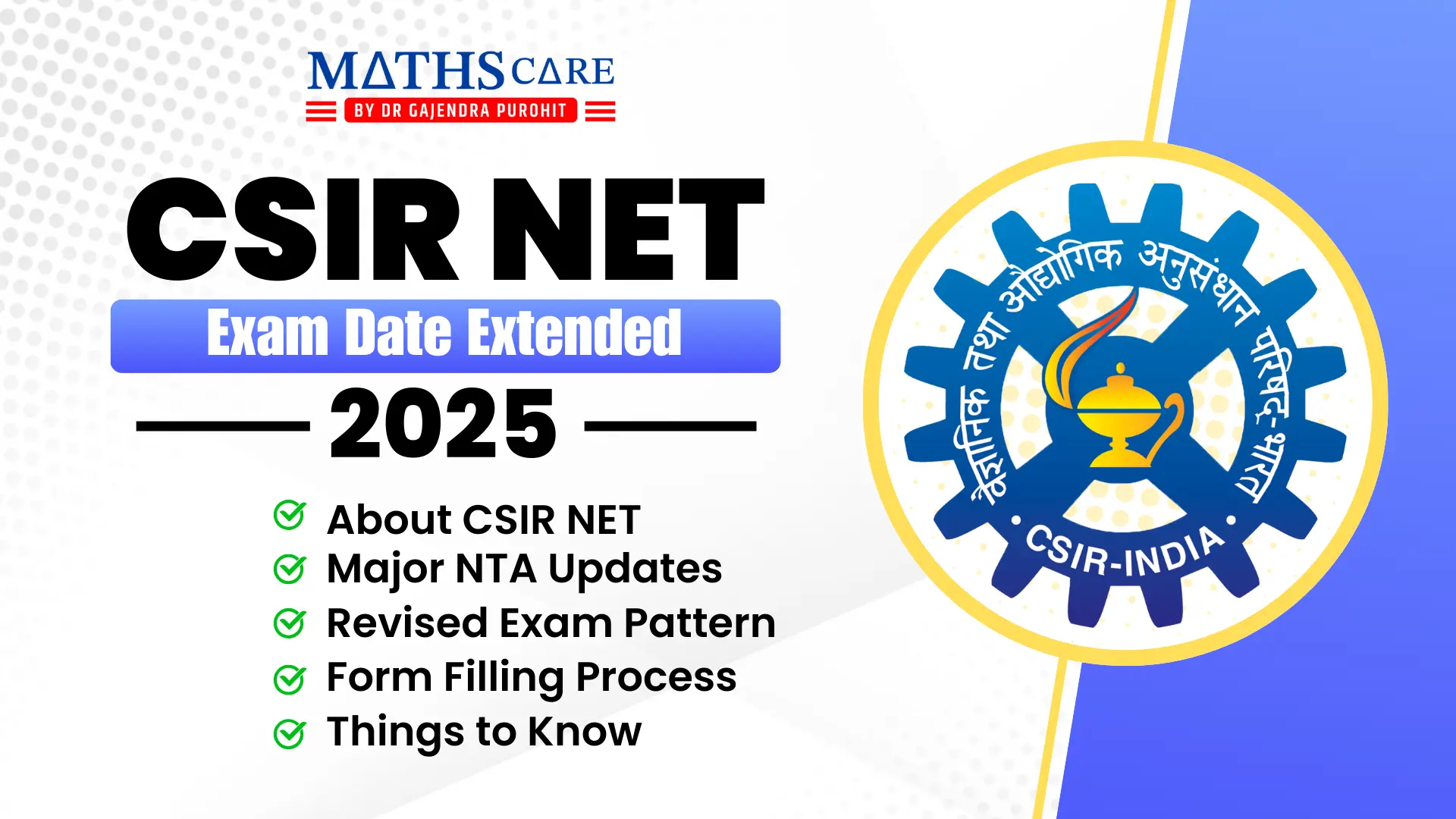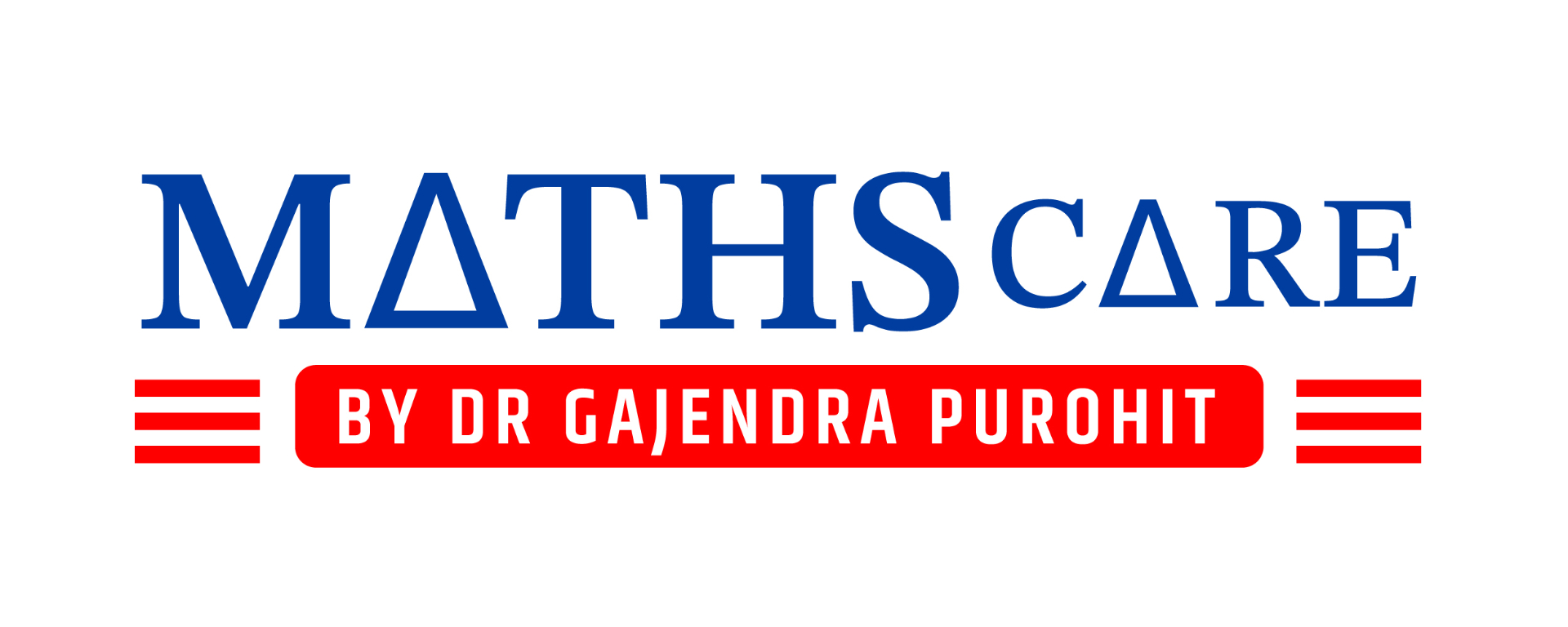CSIR NET December 2024: Section-wise Strategy
Preparing for the CSIR NET December 2024 exam requires a well-structured approach to optimize your performance in each section. With the vast syllabus and high competition, candidates often find it challenging to cover everything thoroughly. To help you ace the exam, this blog provides a section-wise strategy that focuses on Part A (General Aptitude), Part B (MCQs), and Part C (MSQs). We will also discuss the exam pattern, eligibility criteria, important dates, difficulty level, and career opportunities post-qualification.

About CSIR NET December 2024
The Council of Scientific and Industrial Research National Eligibility Test (CSIR NET) is a national-level exam conducted to select candidates for Junior Research Fellowship (JRF) and Lectureship/Assistant Professor positions in Indian universities and colleges. The December 2024 session will be aimed at candidates pursuing careers in various scientific domains, including Mathematical Sciences. The exam is known for its rigorous standards, and a systematic preparation strategy is essential to succeed.
Sectional Division
The CSIR NET exam for Mathematical Sciences is divided into three sections:
Part A (General Aptitude): This section tests a candidate’s reasoning ability, numerical skills, and data interpretation.
Part B (MCQ Type): This section consists of conceptual questions based on the syllabus, with a focus on testing candidates’ understanding of fundamental topics.
Part C (MSQ Type): This section features higher-order questions that require the application of multiple concepts to solve problems.
Marking Scheme:
Total Marks: 200
Part A: 20 marks
Part B: 70 marks
Part C: 110 marks
Negative Marking: Applicable in Part A and Part B but not in Part C.
Eligibility Criteria
To appear for CSIR NET December 2024, candidates need to meet the following criteria:
Educational Qualification: A Master’s degree or equivalent in a related field with at least 55% marks (50% for SC/ST/OBC candidates).
Age Limit:
For JRF: Maximum of 28 years as of December 2024 (relaxations apply for reserved categories).
For Lectureship/Assistant Professor: No upper age limit.
Important Dates (Expected)
While the official dates are yet to be released, based on previous trends, the following timeline can be anticipated:
Notification Release: October-November 2024
Application Deadline: November 2024
Admit Card Release: Early December 2024
Exam Date: Mid to Late December 2024
Results Announcement: January-February 2025
Difficulty Level
The CSIR NET Mathematical Sciences exam is considered moderately difficult to challenging, with Part C being the toughest due to its multi-concept questions. Part A can be managed with consistent practice in reasoning and numerical aptitude, while Part B requires strong conceptual clarity.
Section-Wise Strategy
A targeted approach for each section can help improve your score significantly. Here’s how to optimize your preparation:
Part A (General Aptitude)
Part A covers topics like numerical ability, logical reasoning, and data interpretation. This section is often underrated but can be a scoring opportunity if approached correctly.
Solve Previous Year Questions (PYQs):
Practicing PYQs will help you identify recurring patterns and common question types. Analyze previous trends to understand which topics are frequently tested.
30 Minutes Daily Practice:
Dedicate 30 minutes every day to solving questions from Part A. Regular practice will help improve speed and accuracy, which are crucial for this section.
Solve Questions from Topics Similar to PYQs:
Practice questions from areas that resemble the previously asked questions. Topics like percentages, ratios, and logical sequences often follow a similar pattern.
Give Mock Tests:
Attempting mock tests will simulate the exam environment and help you manage time effectively. It will also help in gauging your strengths and weaknesses in this section.
Part B (MCQ Type)
This section tests your understanding of mathematical concepts through multiple-choice questions. The questions may range from moderate to difficult, and strategic planning is required.
Discard Options by Counter Example:
Use counterexamples to eliminate incorrect options. This technique can significantly reduce the time spent on each question and help you focus on viable answers.
15 Questions to Attempt:
Aim to solve at least 15 questions from this section. Prioritize questions that you find easier or are familiar with, to maximize your score while minimizing the risk of negative marking.
Avoid Negative Marking:
Since negative marking is applicable, avoid guesswork. If you are unsure about a question, it is better to skip it than to risk losing marks.
If You Are Confused, Then Review:
Mark the questions you are unsure about for review. Return to these questions after completing the rest of the paper to avoid wasting too much time.
Part C (MSQ Type)
Part C is the most challenging section as it tests higher-order thinking and application of multiple mathematical concepts. Questions in this section can carry more than one correct answer.
Deeply Subjective Knowledge:
You need to have a deep understanding of the subjects to tackle Part C questions. Prioritize topics like Ordinary Differential Equations (ODE), Real Analysis, and Functional Analysis, which are known to appear frequently.
Multi-Concept Questions:
Part C questions often combine multiple concepts, such as ODE and Real Analysis. Practice solving problems that require the integration of various mathematical topics. This will prepare you to handle complex questions in the exam.
Career Opportunities
Clearing the CSIR NET exam opens up a variety of career paths:
Junior Research Fellowship (JRF): Qualified candidates can pursue a career in research, receiving a monthly stipend while working on research projects in reputed institutes.
Lectureship/Assistant Professor: Candidates who qualify for Lectureship can apply for teaching positions in colleges and universities across India.
Ph.D. Admissions: Many reputed institutes give preference to CSIR NET qualified candidates for admission to Ph.D. programs.
Opportunities in the Private Sector: Some companies, especially those involved in data analysis, research, and development, seek candidates with a strong background in mathematical sciences.
Conclusion
Preparing for CSIR NET December 2024 requires a focused and structured approach for each section of the exam. With strategic planning, consistent practice, and thorough understanding of concepts, it is possible to ace the exam. Following a section-wise strategy will not only help you improve your score but also ensure that you perform optimally in each section. Start your preparation now and stay disciplined throughout the journey to maximize your chances of success.
CSIR NET FAQS
Is general aptitude the same for all subjects in CSIR NET?
CSIR NET Exam is conducted for five subjects for which, Part A remains the same for all the subject takers. Part A consists of the General Aptitude which is further divided into Numerical Ability, Reasoning, Data Interpretation and Graphical Analysis, General Science.
Will CSIR NET be conducted in December?
The CSIR NET examination is held biannually in June and December for the five Science subjects. Candidates who want to become a Junior Research Fellow or Assistant Professor in Science subjects should appear in this examination.
What is CSIR NET useful for?
After passing the CSIR-NET exam, you qualify for both lectureship and research fellowship opportunities. You can apply for teaching positions in colleges and universities nationwide, such as Assistant Professor posts.
Is CSIR a government job?
Council of Scientific & Industrial Research (CSIR) is an autonomous organization under the Ministry of Science & Technology, Govt. of India. It is amongst the foremost scientific and industrial research set ups in the world.
What is the difference between CSIR NET and UGC NET?
CSIR NET focuses exclusively on science subjects like Life Sciences, Physical Sciences, Chemical Sciences, Mathematical Sciences, and Earth Sciences. It is conducted for awarding Junior Research Fellowships (JRF) and Lectureships in science disciplines.
UGC NET, on the other hand, covers a broader range of subjects across humanities, social sciences, and other non-science disciplines. It is conducted for both Junior Research Fellowships (JRF) and Lectureships in various fields, including arts, commerce, and education.
What is the net CSIR exam for?
The Joint CSIR UGC NET exam is conducted to determine the eligibility of Indian nationals for Junior Research Fellowship (JRF) and Lectureship (LS)/Assistant Professor roles in Indian universities and colleges, subject to fulfilling UGC criteria.
BEST OFFERING COURSES FOR YOU
BEST BOOKS FOR IIT JAM/ CSIR-NET
BUY BOOKS ON OUR APP











